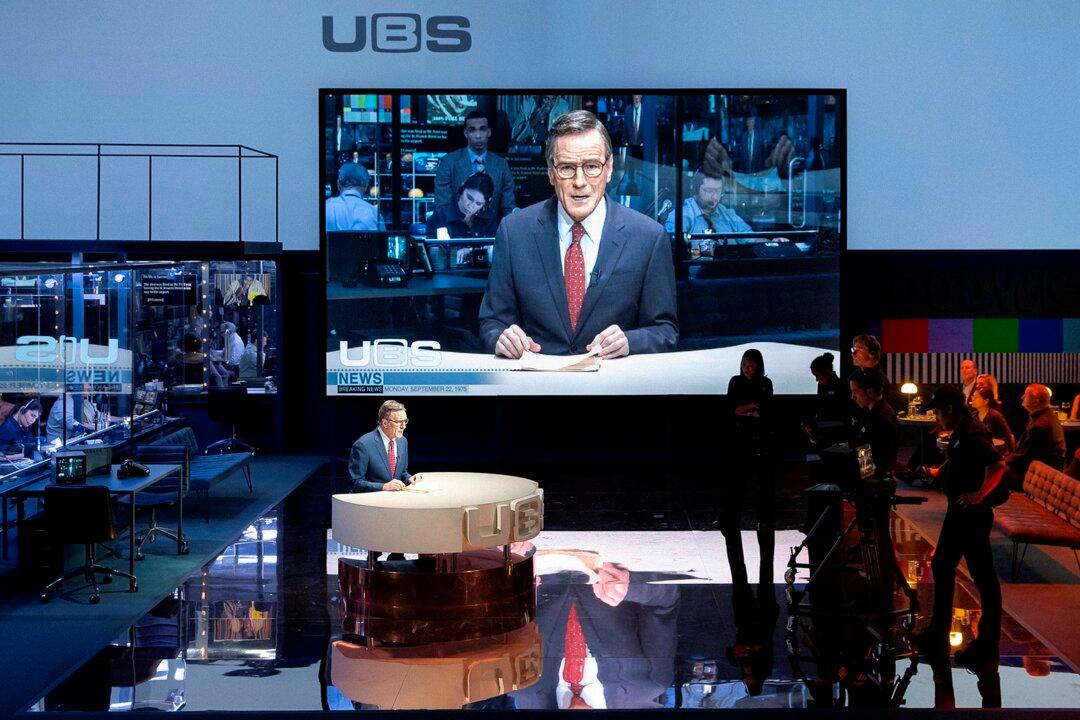NEW YORK—It’s one thing to rail against an oncoming storm, as Paddy Chayefsky depicted in the 1976 film “Network,” a dark satire about the media and corporate mentality. It’s something quite different when the storm is already here. This is the state of our culture today, one which welcomes Lee Hall’s adaptation of the Chayefsky work for the Broadway stage.
One evening after his nightly newscast, respected journalist and longtime UBS-TV anchorman Howard Beale (Bryan Cranston) is given his two-week notice from his job of 25 years. The reason: low ratings.





